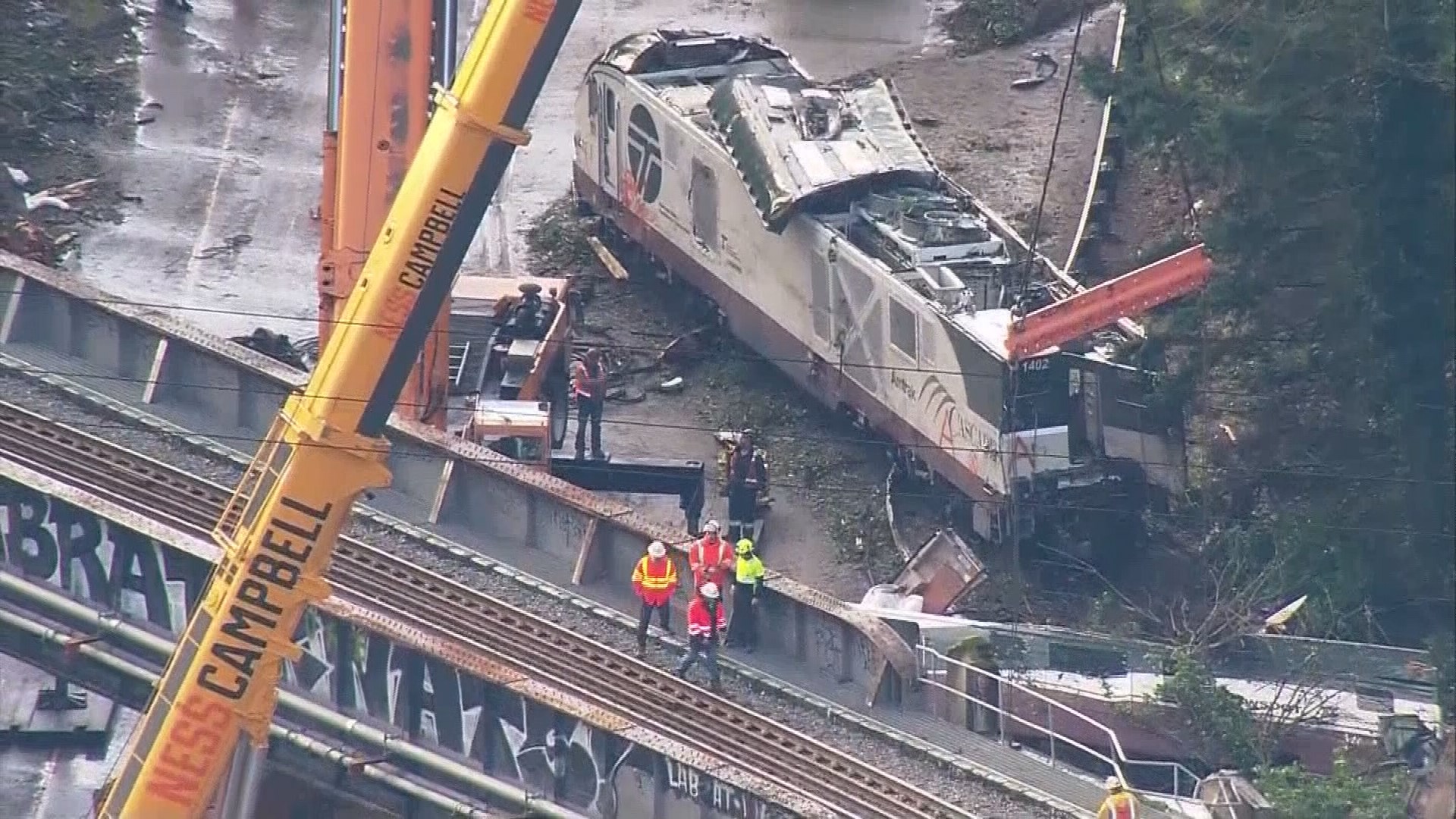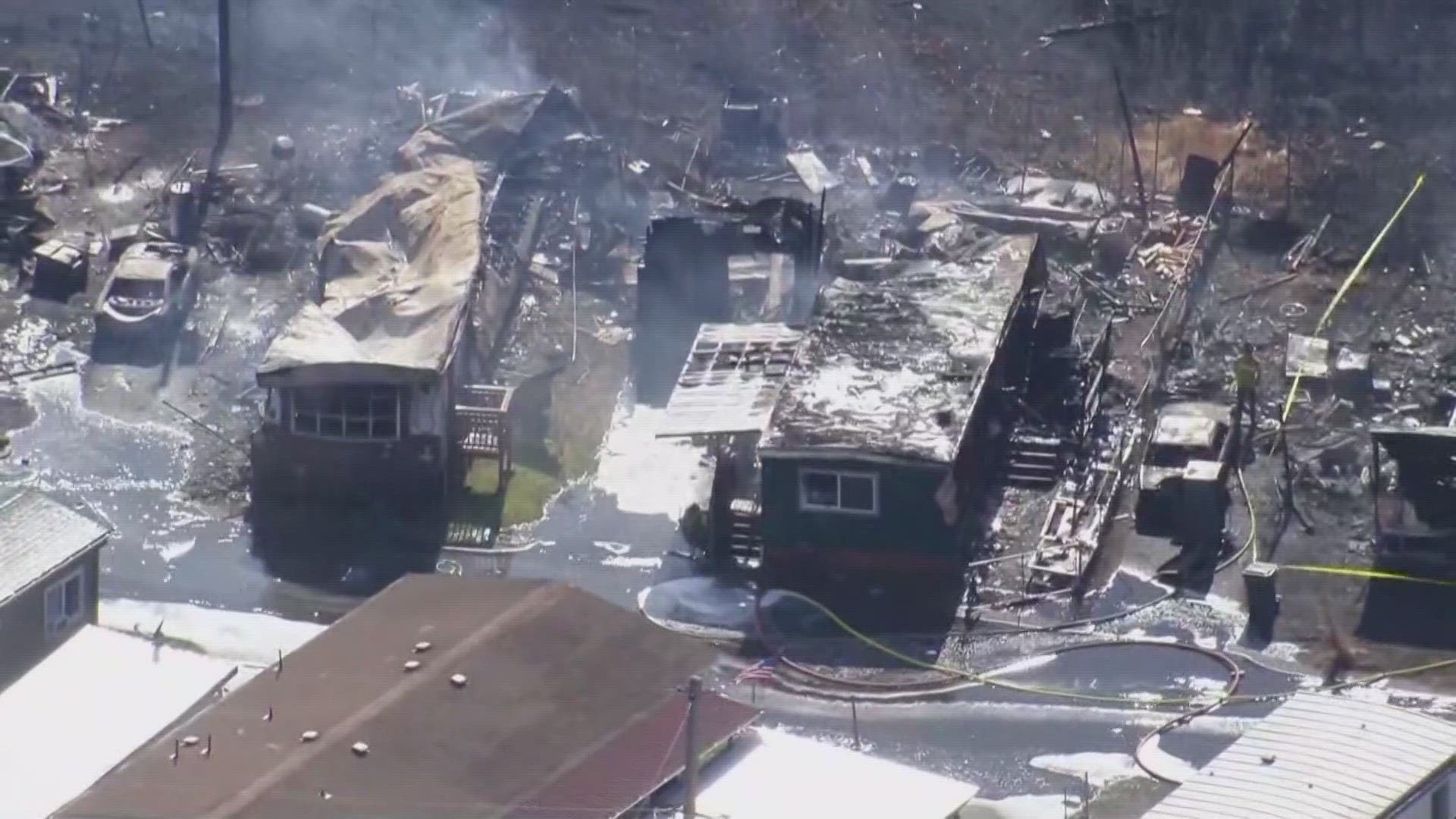The reason airlines have become so safe is not, in a word, accidental. Throughout the entire industry, including manufacturers Boeing and Airbus, regulators around the world and the airlines themselves have adopted major changes to cut the number of injuries, fatalities, and incidents.
It is also no accident that the head of Amtrak, Richard Anderson the former CEO of Delta Air Lines, has picked Ken Hylander, also formerly with Delta, to become Amtrak's new safety chief following the derailment of an Amtrak Cascades train in DuPont last month.
Hylander also leads the Flight Safety Foundation, an industry organization which has championed safer skies for decades.
Breaking down the numbers
Eleven deaths. That's the number of lives lost in Amtrak derailments that didn't involve grade crossing accidents since May of 2015. Add in grade crossing accidents, including one in Texas in 2011 which killed six, and those numbers go higher.
Three people were killed and 70 injured when Amtrak Cascades train 501 derailed on December 18 in DuPont. In May of 2015, eight people were killed aboard another Amtrak train near Philadelphia, with another 200 injured. In both cases, the trains entered curves too fast.
Against this backdrop consider this -- no U.S. passenger airline has had a fatal accident since the Colgan Air crash outside of Buffalo, New York. The Colgan Air crash in 2009 killed 50, including one person on the ground. Even factoring in South Korean carrier Asiana, which crashed at San Francisco International Airport in 2013 and killed three, Amtrak leads in passenger deaths.
"Even in the 1990s, the frequency of fatal events involving passengers on U.S. carriers was much, much higher," says Todd Curtis of AirSafe.com. Curtis is a former Boeing engineer who has operated the website for decades. The website closely analyses your odds in the air, including analysis on which planes and which airlines have the most or the fewest crashes.
How are airlines safer?
One reason is technology. The Ground Proximity Warning System warns pilots if they're flying too close to mountains or they approach flat ground. This one technology has virtually eliminated what had been aviation's most common accident, CFIT, or Controlled Flight Into Terrain, where a perfectly good airplane impacts the Earth because the pilot loses his or her situational awareness.
Airline safety has improved from better coordination and communication between pilots, and pilots and their cockpits, known as CRM, or Crew Resource management. Most Amtrak trains have only one engineer up front.
Then there's the industry analysis of mountains of maintenance and operational data, called SMS, the Safety Management System, which looks for patterns to prevent accidents before they happen.
If for example, a certain airplane part fails more often than expected, the data shared among airlines and manufacturers can pick that up and fix the problem before that part can contribute to an accident.
"If you were to go back 20 or 30 years and project into the future, this would have been far end of optimistic," says Curtis, pointing to the decades when a major airline crash in the United States was almost an annual occurrence, and nine years without a fatal passenger airliner crash in the U.S. would have been considered unthinkable.
Amtrak says it runs around 300 trains a day across its nationwide network, including busy corridors in the northeast and a growing corridor here in the Pacific Northwest. The number of planes in operation is exponentially greater, with nearly 5,000 flights in the air every hour.
Curtis adds, "Without getting into very heavy statistics, a lot more traffic – no fatal events, less traffic - two fatal events. Airplanes win."


